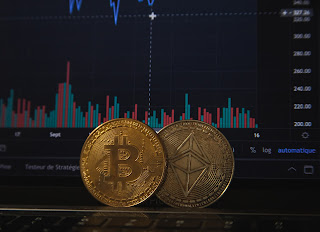Because of the high volatility of the cryptocurrency market, liquidations are common. Bitcoin and other cryptocurrencies are well-known for being high-risk investments with volatile price swings. While this volatility is a source of concern for regulators, it also provides an opportunity for traders to generate significant profits, especially when compared to traditional asset classes such as stocks and commodities.
This volatility is exacerbated by the possibility of increasing the size of crypto trading positions through the use of derivatives products such as leveraged trading.
Using borrowed funds from a cryptocurrency exchange, traders can increase their earning potential with leveraged trading.
Stormgain, and
PrimXBT are just a couple examples of cryptocurrency exchanges that allow customers to trade with high leverage (up to 500x).
While borrowing funds to increase your trade positions can magnify any potential gains, you can also easily lose your invested capital, making this type of trading a double-edged sword. When an exchange forcibly closes a trader's leveraged position due to a partial or total loss of the trader's initial margin, this is referred to as liquidation. When a trader is unable to meet the margin requirements for a leveraged position, this occurs.
How to Prevent Liquidation
When using leverage, there are a few options available to reduce the likelihood of being liquidated. A "stop-loss" is one of these options. If the market price reaches your stop price, the stop order executes and sells the asset at the specified price and amount. A stop loss's primary function is to limit potential losses.
Setting a stop-loss correctly is critical, and while there is no hard and fast rule, a spread of 2% to 5% of your trade size is commonly recommended. If you have $1,000 in your trading account and your leverage is 500X ($500,000), you can open a position with a 2 percent stop-loss of $20.
In its most basic form, a limit order is an order to buy or sell an asset at a specific price. Limit orders are placed in order to limit price risks. It is important to note that if the price is set higher than the current price for buys or lower than the current price for sells, there may be an immediate fill because a better price is available than the limit price specified.
The disadvantage of a limit order is that it will not be filled if the limit price is not met by an interested buyer or seller within the time period specified. Second, and perhaps most importantly, timing is critical when placing limit orders. Every order placed in an exchange's order book is time-stamped. Trades executed first take precedence over orders executed later, even if they have the same limit price as an order executed later.
When you use limit orders, you don't have to "babysit" your trading, but if you're not paying attention, you could miss out in a volatile market. In any case, you will have some say over the price you pay or receive.









